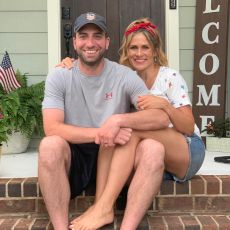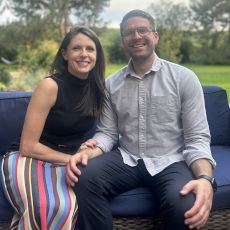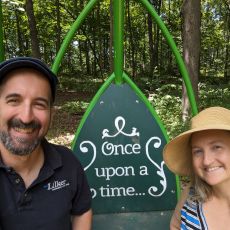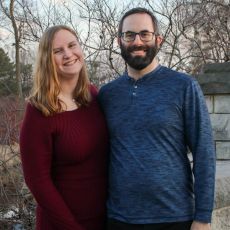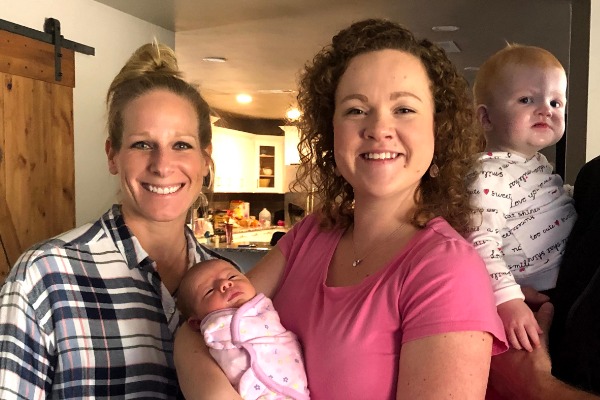Open Adoption Statistics and Studies
What They Mean for Birth Parents Today
Open adoption has become the standard practice in modern adoptions. In an open adoption, the birth and adoptive families share some level of contact or exchange of information, as opposed to the secrecy of closed adoptions. This represents a dramatic shift from a few decades ago, when most adoptions were closed and confidential.
Curious about how an open adoption will look in your situation? Call 1-800-ADOPTION or complete this free online contact form to speak with a specialist.
Today, research and statistics show that most infant adoptions involve some degree of openness, and that this openness can offer significant benefits for everyone involved – especially birth parents and their children.
Studies Show Open Adoption is Now the Norm
In recent years, open adoption has gone from rare to routine. The vast majority of domestic infant adoptions in the U.S. are now open or semi-open. In fact, multiple sources indicate that roughly 95% of private infant adoptions today have some level of openness.
This means only about 5% of modern adoptions are fully closed a complete reversal from the mid-20th century when nearly all adoptions were closed by default. Openness can range from the exchange of basic information to ongoing contact through letters, photos, phone calls, or even in-person visits.
This reality might surprise those who assume adoption means “goodbye forever.” In reality, most adoptive families and birth parents want to have some form of relationship and prefer to have some level of openness with one another rather than no contact at all.
Benefits of Open Adoption for Birth Parents
For birth parents, the thought of placing a child for adoption is often accompanied by fear of loss and uncertainty. Open adoption directly addresses some of these fears. Studies consistently show that birth mothers find comfort, emotionally and psychologically, when they have ongoing contact or knowledge of their child’s well-being. Openness offers reassurance that can ease the difficult emotions that often arise after placement.
Greater Peace of Mind
Perhaps the most significant benefit reported by birth mothers in open adoptions is peace of mind. Knowing how their child is doing as they grow up can alleviate any “what if” questions. Research has found that birth mothers who have ongoing contact with their children report less grief, worry, and regret than those who have no contact.
Higher Satisfaction With the Adoption Decision
Maintaining some form of contact can help affirm to birth parents that they made the right choice, increasing their satisfaction with their adoption decision. In open adoption settings, birth mothers are more likely to say they are satisfied with the adoption over time.
A recent study of birth mothers found that those who had current contact with their child were more likely to express satisfaction with their decision to place, compared to those with no contact. This suggests that openness can validate a birth mother’s choice, as she can directly see her child’s positive outcomes (and even see her own role in giving the child opportunities).
Better Emotional Health and Post-Adoption Adjustment
Decades of research have dispelled the old myth that seeing the child would “interrupt” a birth mother’s healing. In fact, the opposite is true: ongoing contact is linked to better emotional adjustment. Birth mothers in open adoptions tend to have lower levels of chronic grief and depression than those in closed adoptions, according to studies.
One study found that features of open adoption like visits or phone calls had a “strong relationship with long-term positive outcomes” for birth mothers, including better mental health. Being able to be part of the child’s life in some capacity can help a birth mother process her grief more naturally.
Benefits of Openness for Adoptees and Adoptive Families
Open adoption is not just beneficial for birth parents – children and adoptive parents also tend to thrive with openness, which is another key reason open adoption has become standard. Knowing that their child will benefit and that adoptive parents are on board can further reassure birth parents considering an open adoption plan.
Adoptees Gain a Sense of Identity
For adoptees, growing up with some level of openness can answer important questions and strengthen their sense of identity. Studies show that adoptees that have ongoing contact with birth family are more satisfied with their adoption than those without contact.
By adolescence, openness often translates into better emotional adjustment – one study found that teens in open adoptions had less anger and felt more at peace with their adoption story. Openness also means adoptees can access their biological medical history and cultural heritage more readily, which can be important for their well-being.
Adoptive Families Benefit From Collaboration
The relationship formed in an open adoption can be enriching for adoptive parents, too. Research finds that most adoptive parents have positive experiences with open adoption and value the benefits it brings. Openness has been shown to increase adoptive parents’ empathy toward the birth family and give them greater respect for the courageous decision the birth parents made.
It also helps adoptive parents answer their child’s questions honestly as they grow up, strengthening trust within the family. With open channels of communication, adoptive parents can gain important medical or family history information from birth relatives over time, and even seek advice or share milestones. While every situation is unique, open adoption often ends up adding more love to the child’s life, rather than taking anything away.
Studies on Openness in Adoption
· Creating a Family. (n.d.). Open Adoption: Understanding the benefits and challenges. Creating a Family. Retrieved from https://creatingafamily.org/adoption/resources/open-adoption/
· University of Connecticut Health. (n.d.). Openness in Adoption. Adoption Assistance Program. Retrieved from https://health.uconn.edu/adoption-assistance/learn/openness-in-adoption/
· FindLaw. (2021, June 16). Adoption Statistics and Legal Trends. Retrieved from https://www.findlaw.com/family/adoption/adoption-statistics-and-legal-trends.html
· National Council For Adoption. (2019). Adoption Advocate No. 133: Openness in Adoption: What We Know So Far. Retrieved from https://adoptioncouncil.org/publications/adoption-advocate-no-133/
· Baylor University. (2018, October 22). Are Birth Mothers Satisfied with Their Decisions to Place Children for Adoption? Time Will Tell. Baylor University News. Retrieved from https://news.web.baylor.edu/news/story/2018/are-birth-mothers-satisfied-their-decisions-place-children-adoption-time-will-tell
· Grotevant, H. D., McRoy, R. G., Elde, C. L., & Fravel, D. L. (1994). Adoptive identity: How contexts within and beyond the family shape developmental pathways. Family Relations, 43(4), 469–477. https://pmc.ncbi.nlm.nih.gov/articles/PMC2638763/
· Siegel, D. H. (2008). Open adoption of infants: Adoptive parents' feelings seven years later. Journal of Social and Personal Relationships, 25(6), 845–865. https://journals.sagepub.com/doi/abs/10.1177/0265407507084188
· Henney, S. M., Ayers-Lopez, S., McRoy, R. G., & Grotevant, H. D. (2007). Evolution and resolution: Birthmothers' experience of grief and loss at different levels of openness. Journal of Social and Personal Relationships, 24(6), 875–889. https://pubmed.ncbi.nlm.nih.gov/17305046/
· McRoy, R. G., Grotevant, H. D., Ayers-Lopez, S., & Henney, S. M. (1997). Contact between adopters and birth families: Perspectives from adoptive families and birth mothers. Children and Youth Services Review, 19(1–2), 61–80. https://www.sciencedirect.com/science/article/abs/pii/S0190740997000716
The Future of Adoption Is Open
As adoption continues to evolve, openness has become more than a trend — it’s a reflection of the deep love birth parents have for their children and the desire to remain part of their lives in meaningful ways. Whether through photos, letters, or lifelong relationships, open adoption offers comfort, clarity, and connection for everyone involved.
If you’re exploring adoption, know that you have the power to create an adoption plan that reflects your preferences — and we’ll be here with you every step of the way.
To learn more about open adoption, check out this in-depth guide or call 1-800-ADOPTION to speak with a specialist.
Disclaimer
Information available through these links is the sole property of the companies and organizations listed therein. American Adoptions provides this information as a courtesy and is in no way responsible for its content or accuracy.





